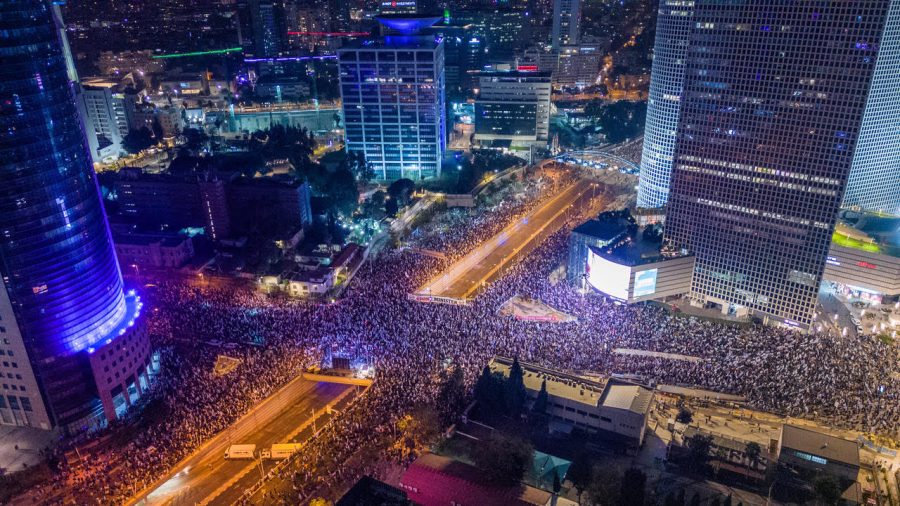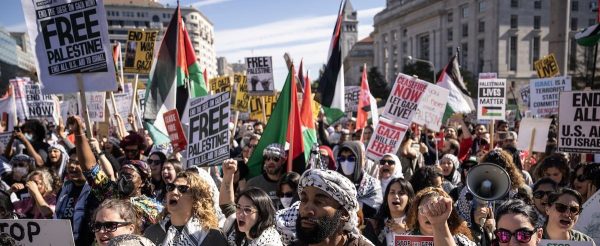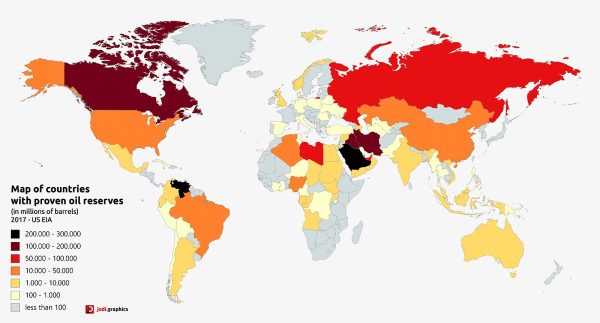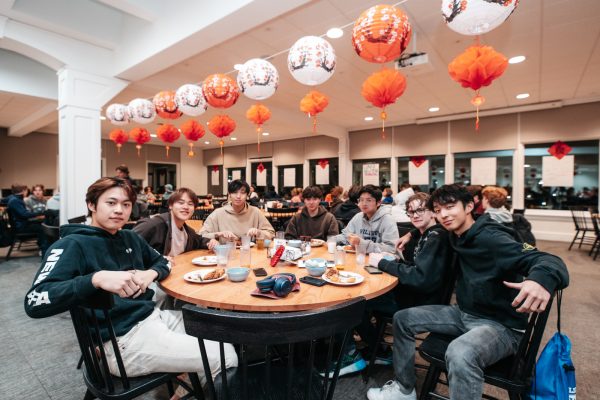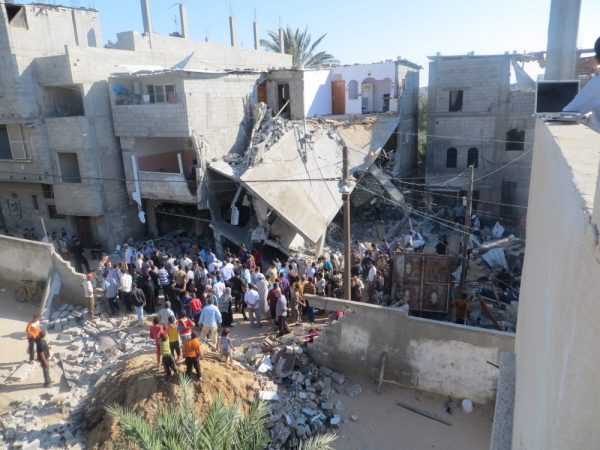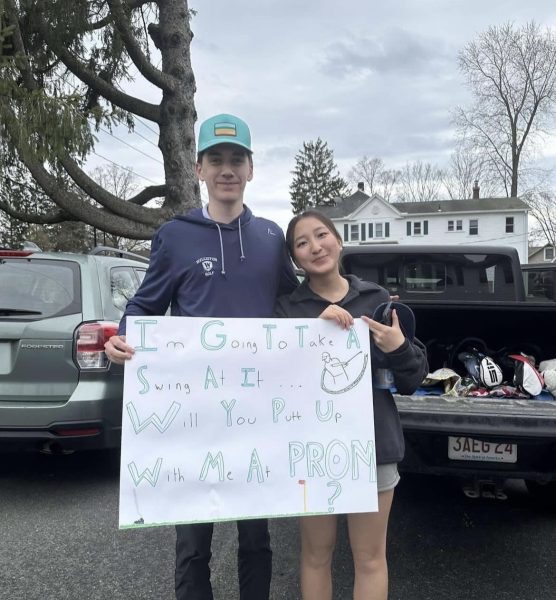Israelis Take to Streets in Protest
Tensions are running high in Israel, as thousands continue to protest a decision made by Prime Minister Benjamin Netanyahu to overhaul some of his government’s judicial systems, a step that critics say would make it easier for Netanyahu to stay in office.
Since first being elected as Prime Minister of Israel in 2009, Netanyahu and his party have long faced criticism for a style of governance his opponents have called authoritarian. Additionally, Netanyahu has been the subject of multiple corruption investigations in Israel in the past decade.
Most recently, Netanyahu was indicted on charges of accepting bribes and fraud in Nov. 2019. While the investigation is still ongoing, Netanyahu has not been prevented from holding the office of Prime Minster since he was indicted. If convicted, though, the Prime Minister could face several years in prison, according to the New York Times.
Despite the many calls for him to resign that have arisen since his indictment, Netanyahu intends to remain in office for as long as possible.
Netanyahu most recently sparked outrage when he proposed a series of changes to the country’s judicial system. The proposed changes seek to limit the abilities of the country’s Supreme Court to influence national lawmaking and politics, according to the New York Times.
While Netanyahu and other proponents of the changes maintain this is a necessary step in curtailing the influence of an excessively powerful judiciary, those protesting the new legislation see it as an attempt to seize absolute power.
“I think this is really part of a broader effort on the part of this very right-wing government to enact a series of laws that will appeal to their base but that will alienate the broad section of the left,” said Justin Cammy, an expert in Jewish and Israeli studies and Professor at Smith College. “We’re seeing a coalition of centrist moderate liberals, leftists, and even some conservatives who agree with the need to put things back into a better balance,” he told The Willistonian.
The recent movement has included some of the largest social protests in Israel’s history, with more than 600,000 citizens turning out in defiance of Netanyahu’s reform at the end of March, according to Vox. In a country of over nine million, these staggering numbers make up more than six percent of the nation’s entire population.
Cammy told The Willistonian he has been inspired by the vast swaths of Israel’s population involved in the protests.
“It’s been really beautiful to see so many people come out into the streets,” he said. “It shows a really strong democratic impulse.”
Cammy, like many in Israel, believes the protests’ numbers could also pressure Netanyahu to reconsider whether the reform he is pushing is politically worthwhile.
“These remarkable numbers have forced Netanyahu to pause and consider whether he’s going to resist some of the pressures within his coalition to keep pushing this,” he said.
Since the protests began, Netanyahu and his allies in the Israeli government have condemned the protests as undemocratic and even anarchist, with Netanyahu responding to the protests by calling on participants to “stop the anarchy immediately.”
In reality, though, the wave of protests has remained largely peaceful, with the exception of a few violent clashes between law enforcement and protestors.
Cammy believes that protesters’ peacefulness shows that they are committed to the democratic process.
“I think that it means that they’re committed to the rule of law, despite Netanyahu’s coalition calling them anarchists or ‘Antifa,’’’ Cammy said. “The fact that they’re protesting doesn’t make them anarchists and it doesn’t make them antidemocratic. Protesting is actually part of the democratic system.”
The far-reaching opposition to Netanyahu’s judicial reform has even extended to members of Israel’s military, with many from the nation’s armed forces showing up at protests.
One such protester, Yiftach Golov, told CNN he believes it is his duty as a military veteran to join the protests.
“We believe this is our responsibility to go once again, called to the flag of the nation, to stop this madness to defend Israel,” Golov, part of a group of veterans called “Brothers and Sisters in Arms,” said.
Additionally, some Air Force reservists serving in elite branches of the Israeli military have taken their defiance a step further by threatening not to fulfill their duties if the current judicial changes continue.
“What really moved Netanyahu, even more than the mass protests, was the unprecedented nature of members of the army reserve refusing to show up for their reserve duty,” Cammy said. “He may have been able to withstand these protests, but once you start to have a number of reservists refusing to show up for duty, then you have a problem,” he explained.
Among the many protesters in Israel were some members of the local community, including a few from Northampton.
Rabbi Justin David, an activist and the Rabbi at Congregation B’nai Israel, a Jewish synagogue in Northampton, Mass., had a hiking trip scheduled in Israel when his plans were interrupted by the nationwide protests.
According to the Daily Hampshire Gazette, David ultimately took part in the protests while he was there, marching alongside thousands of others in Tel Aviv, Israel’s second-largest city.
David was inspired by the protests, and observed that those involved are truly concerned about the future of their country.
“The people I spoke to were genuinely concerned about the deep fractures in the nature of the country,” said David. “It’s a time of great concern and uncertainty, and yet there’s also a great vitality of and beauty among the people,” David told the Gazette following his trip.
During many rallies, protesters can be heard chanting “demokratyah,” the Hebrew word for democracy. Amidst accusations of undemocratic behavior coming from the government, David appreciates protesters’ focus on democracy.
“When you can take the complex nature of the society and its moment and ideas, and reduce it to one word, you have a really effective strategy,” David said. “I thought they [the protesters] were filled with energy, filled with purpose, and that really seemed to lift people up.”
Like David, Cammy believes that the protesters’ energy is an important part of maintaining a healthy democracy. Cammy told The Willistonian that it is necessary for other democracies, like the United States, to show support for democratic efforts in Israel.
“In a broader environment of mistrust and violence, it’s incumbent on the United States not to withdraw but to lean in,” Cammy said. “Because when the United States puts its name on the line, it can produce results.”



